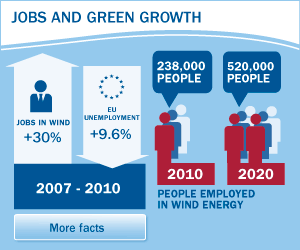Blown away by Brazil’s booming wind industry
 Far from the bright lights of Rio de Janeiro, the north-easterly Brazilian states of Ceara and Rio Grande del Norte are blessed with some of the strongest and most consistent winds in the world.
Far from the bright lights of Rio de Janeiro, the north-easterly Brazilian states of Ceara and Rio Grande del Norte are blessed with some of the strongest and most consistent winds in the world.
With such high potential, it is not surprising that Brazil’s wind energy industry has been taking off massively in the last couple of years: the country added 264 MW of capacity in 2009 and by mid-2010, another 180 MW were installed, making a total of 786 MW.
In December 2009, the Brazilian energy regulator hosted the first wind-only auction, which contracted 71 wind energy projects for a total capacity of 1,800 MW. Two additional auctions took place in August 2010, resulting in an additional more than 3 GW of tendered capacity for September 2013.
But without a long-term regulatory framework, it is hard to know whether this is a one-off, or whether these wind-only auctions will become regular. Nothing has officially been stated at federal level.
Steve Sawyer, Secretary-General of the Global Wind Energy Council, stresses that although Brazil has massive potential, the government’s refusal to commit to a yearly auction means “the long-term signal is missing”.
Whatever happens in the future, the number of big international players now flocking to the Brazilian industry is going up. While previously only one wind turbine manufacturer, Wobben Windpower, a subsidiary of Enercon, was manufacturing in Brazil for the Brazilian market, many other turbine suppliers are now planning factories there, including Vestas, Suzlon, GE, Gamesa, Alstom and Fuhrländer.
Overall, it seems clear that as for other industries, Brazil is likely to become a world player for wind energy, providing a hugely important platform for Europe’s companies to grow and build up their portfolios. All that is needed in order to ensure that the possible future is truly durable is to reinforce it with a long-term legislative framework.
Read the full article in the latest Wind Directions.






